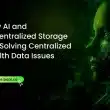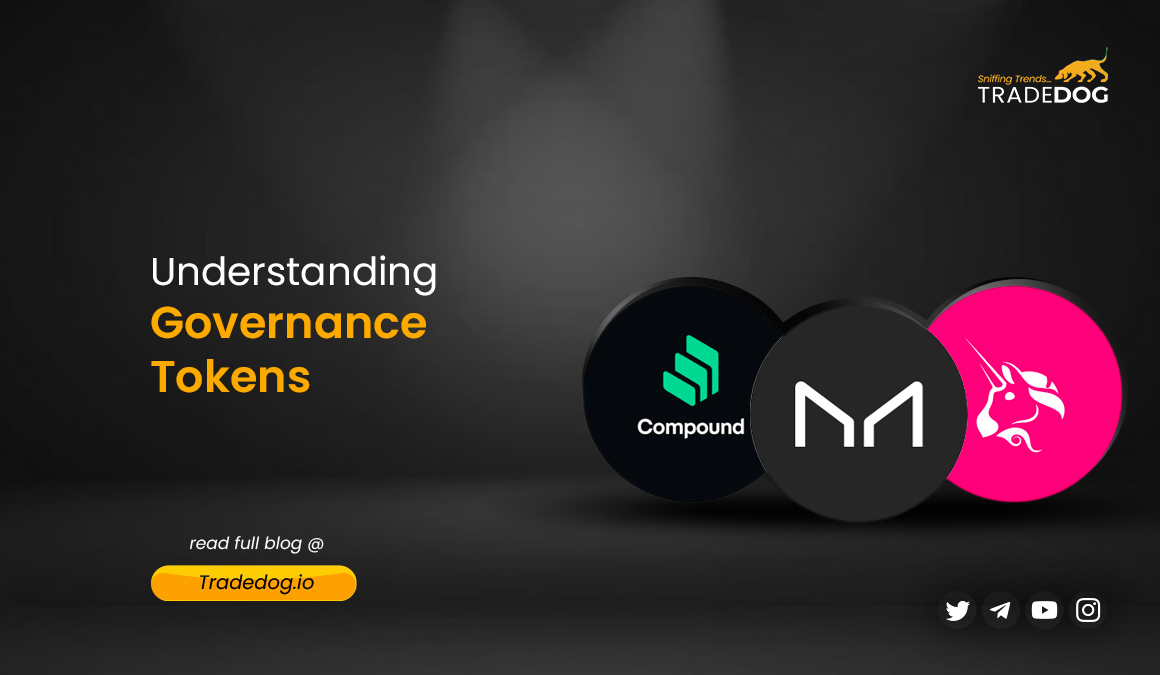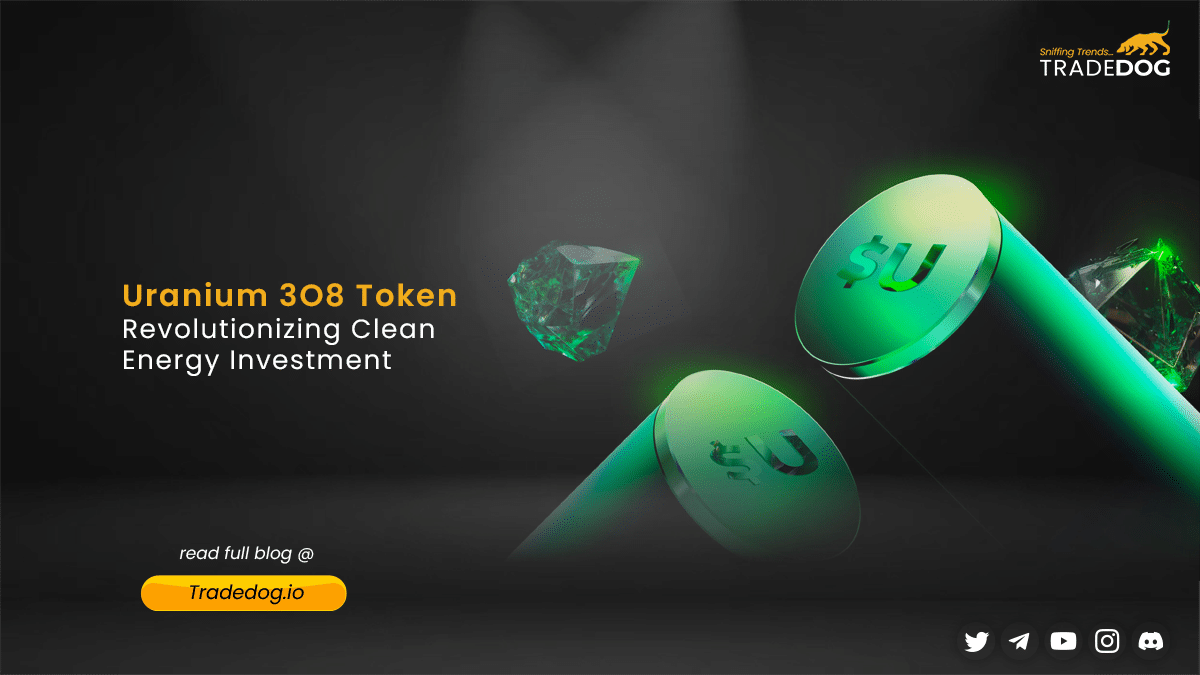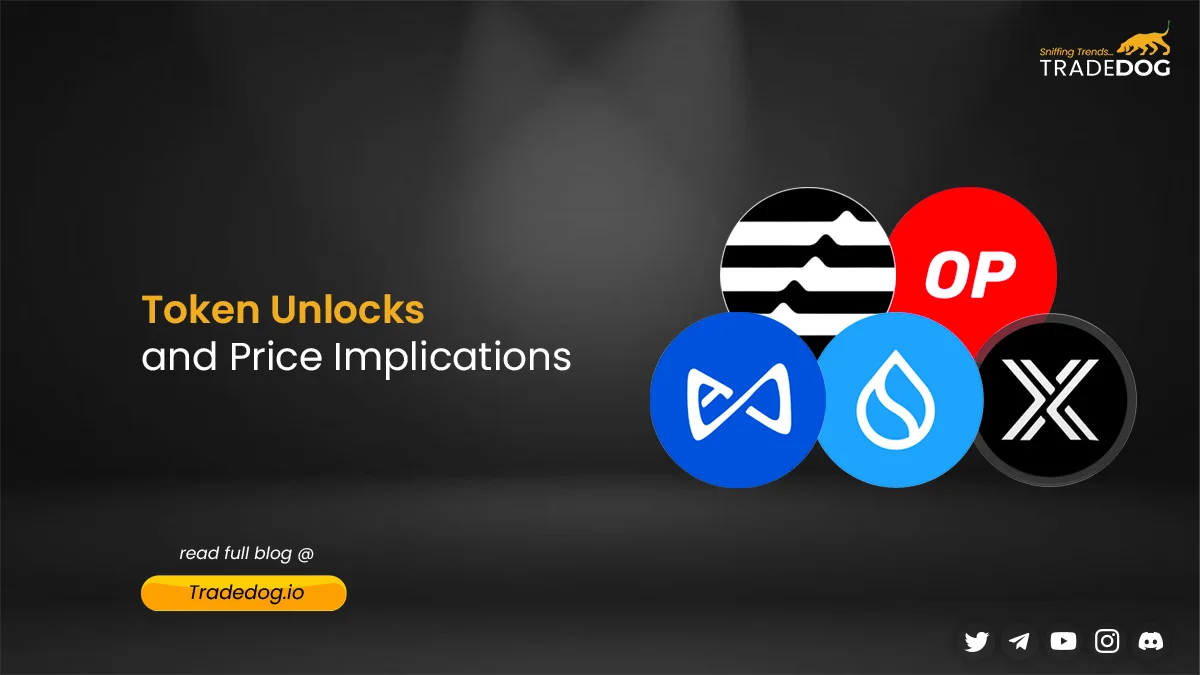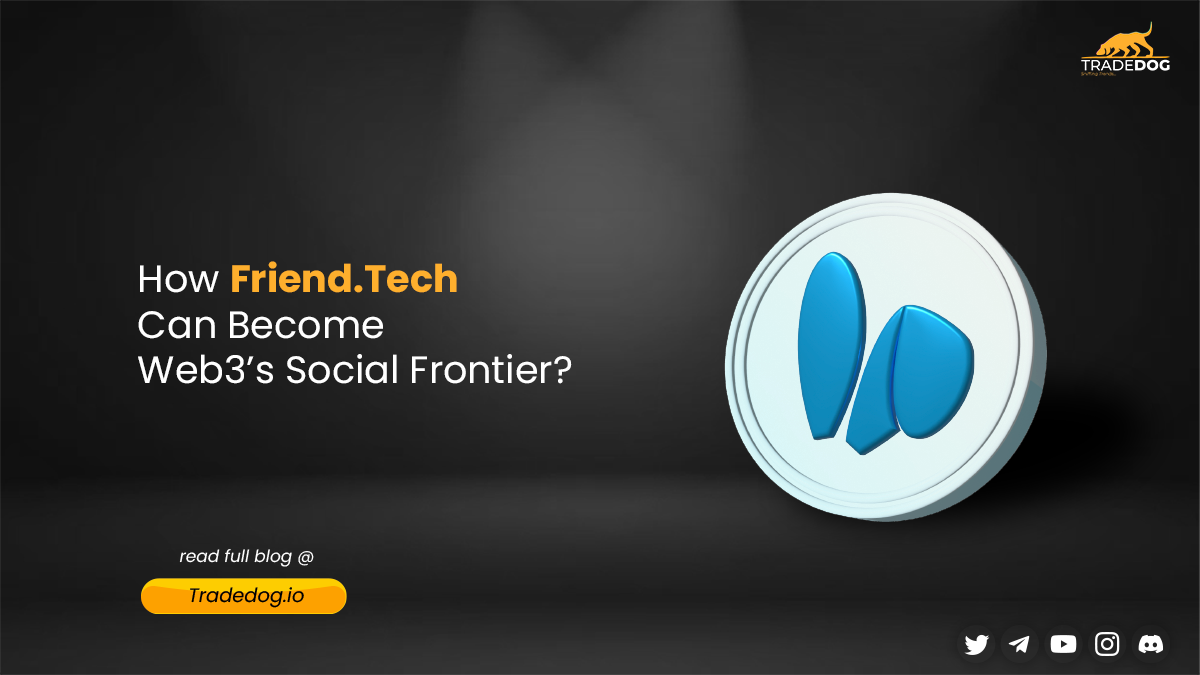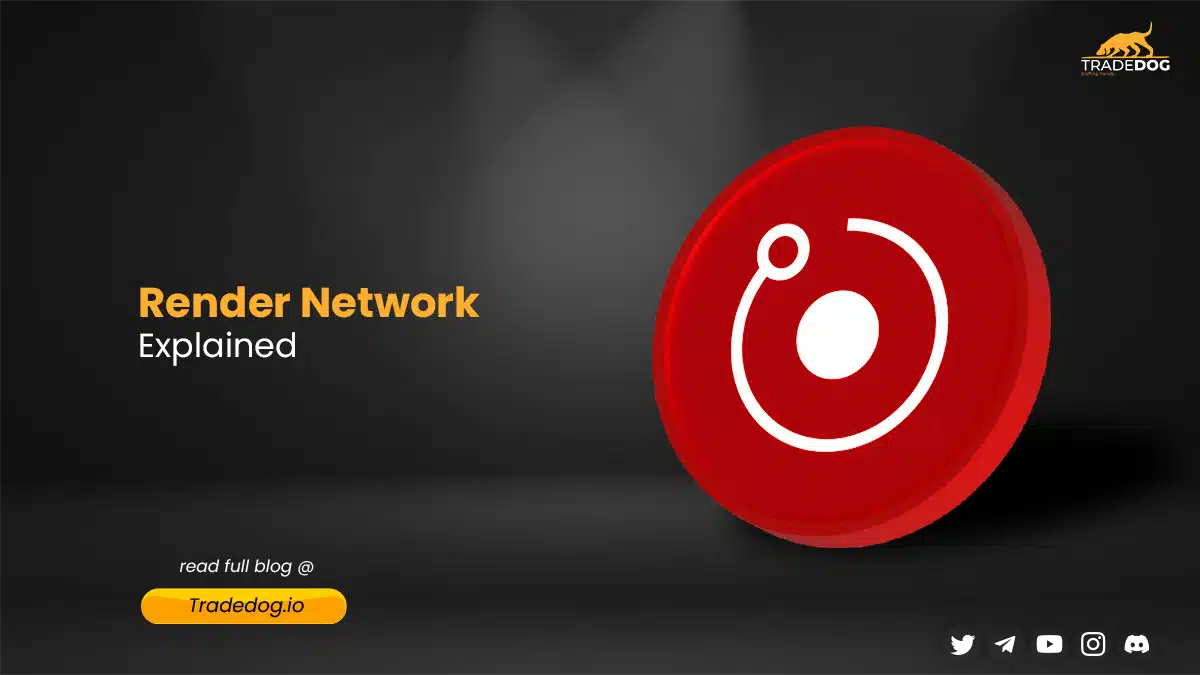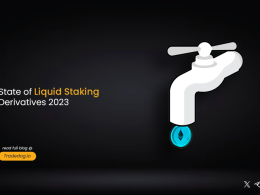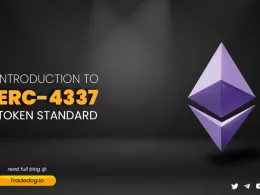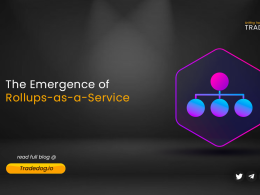Quick Links
Governance tokens are emerging as a transformative force in the world of decentralized finance (DeFi). These tokens are not just digital assets used for transactions or as a store of value. They embody a fundamental shift in the decision-making processes within these decentralized systems. They empower token holders with voting rights, allowing them to influence the rules and operations of the platform in which they are invested.
However, the path to understanding governance tokens is not always straightforward. Their role in the DeFi sector is complex and nuanced, often leading to misunderstandings or oversights. This lack of clarity can result in missed opportunities for those navigating the DeFi landscape and even potential pitfalls that could impact their investments.
Decentralized Autonomous Organizations (DAOs), which are at the forefront of utilizing governance tokens, have a significant scale and impact in the DeFi sector. As per the latest data, the total treasury across all DAOs is approximately $37.3 billion. This figure represents the collective financial strength of these organizations, underlining the substantial economic activity taking place within this space.
What are Governance Tokens?
Governance tokens are a type of cryptocurrency that gives holders the power to influence decisions within a particular blockchain ecosystem. Unlike regular tokens, which might be used for transactions or as a store of value, governance tokens serve a specific purpose: they allow token holders to participate in the governance of the decentralized platform.
In simple terms, if you own governance tokens, you have a say in the rules and future direction of the platform. It is like having voting rights in a company because you own shares.
The Role of Governance Tokens in the DeFi Ecosystem
Governance tokens empower users and promote a truly decentralized and democratic decision-making process within the DeFi ecosystem:
- Maintaining and Improving the System: Governance tokens play a crucial role in the upkeep and enhancement of the DeFi system.
- Decentralizing Decision-Making Power: They ensure that the power to make decisions is distributed among the users of the platform rather than being concentrated in a single authority. This is the essence of decentralization.
- Enabling Voting on Various Matters: Token holders can vote on a variety of matters, such as changes to the platform’s rules, introduction of new features, or even decisions on how to allocate resources.
- Evolving the Platform: The platform evolves based on the collective input of its users, aligning its development with the needs and interests of its community.
Examples of Governance Tokens
Governance tokens grant holders the right to vote on various aspects of a platform’s operation, thereby decentralizing control and aligning the platform’s development with the interests of its users. Let us take a look at some famous examples of governance tokens and the platforms they govern:
- Uniswap (UNI): Uniswap, a decentralized trading platform, uses UNI as its governance token. UNI holders have the power to vote on proposed changes to the Uniswap platform, which can range from minor adjustments to significant system overhauls.
- Compound (COMP): Compound is a platform that facilitates the lending and borrowing of cryptocurrencies. Its governance token, COMP, allows holders to propose, debate, and vote on changes to the Compound protocol.
- Maker (MKR): Maker is a platform that enables users to create and manage a stablecoin called DAI, which is pegged to the US dollar. MKR is the governance token for the Maker platform, granting holders the right to vote on changes to the Maker system.
- Aave (AAVE): Aave is another place where you can lend or borrow cryptocurrencies. AAVE is its governance token, giving you a voice in its operations.
- Yearn.Finance (YFI): Yearn.Finance is a platform that helps you find the best places to lend your cryptocurrencies. YFI is its governance token, letting you help decide how it does this.
How Do Governance Tokens Work?
Governance tokens work by giving their holders the power to vote on decisions about the platform’s operation. Here’s a simple explanation of how it works:
Ownership and Voting Rights
Acquiring governance tokens is akin to purchasing a stake in a decentralized platform. This stake isn’t merely symbolic; it comes with the privilege to vote on proposals that can shape the platform’s rules and operations. The more tokens you possess, the greater your voting power.
Proposals
Proposals are suggestions for changes or enhancements to the platform. They can range from minor adjustments to significant overhauls. Any holder of a certain amount of governance tokens can put forth a proposal. The required amount varies from one platform to another.
Voting
Once a proposal has been made, it’s up to the token holders to determine whether it should be implemented. They do this by voting. The voting process is typically conducted on the blockchain, ensuring transparency and security. Each token usually equates to one vote, so the more tokens you have, the more influence you can wield over the outcome.
Decision Making
After the voting period concludes, the votes are counted. If the proposal garners enough votes (the exact number can vary), it’s approved. The proposed changes are then implemented in the platform.
Continuous Evolution
The process doesn’t end there. As long as there are token holders, there will be proposals and votes. This ensures that the platform can adapt and evolve according to the needs and desires of its users. This continuous evolution is a key feature of decentralized platforms.
Benefits of Governance Tokens
Governance tokens come with several benefits that make them a key part of the decentralized finance world
- Power to the People: The biggest benefit of governance tokens is that they give power to the token holders. They allow the people who use a platform to have a say in how it’s run. This means that the platform can be shaped to better meet the needs of its users.
- Promoting Decentralization: Governance tokens help to spread power among many people. This is a big part of what makes decentralized finance different from traditional finance. In traditional finance, decisions are made by a small group of people at the top. But with governance tokens, everyone can have a say.
- Financial Incentives: Some platforms offer rewards to governance token holders. This could be a share of the platform’s profits, or extra tokens. These incentives encourage more people to get involved in governance.
- Transparency and Trust: Because voting is done on the blockchain, it’s transparent and secure. This helps to build trust in the platform. Users can see that decisions are being made fairly and that their votes really do count.
- Community Building: Governance tokens can help to build a sense of community among users. When people have a say in how a platform is run, they’re more likely to feel a sense of ownership and commitment to it.
Risks and Challenges
Risks
Governance tokens, while offering numerous benefits, also present certain risks and challenges. One of the main concerns is token concentration. If a small group of people accumulates a large number of tokens, they can dominate the decision-making process. This can lead to a form of centralization, which contradicts the principle of decentralization that DeFi aims to uphold.
Another challenge is low voter participation. There may be instances where token holders do not participate in the voting process due to a lack of interest or understanding. This can result in decisions being made by a small number of participants, which may not reflect the interests of the entire community.
The governance process can also be complex and challenging for some token holders to understand. This complexity can deter them from participating in the governance process. Additionally, the value of governance tokens can fluctuate, leading to financial risk. If the value of the tokens drops significantly, it could lead to substantial losses for the token holders.
Mitigating the Risks
Despite these challenges, there are ways to mitigate these risks. To prevent token concentration, platforms can ensure a fair distribution of tokens. This can be achieved through mechanisms like airdrops or farming.
To address the issue of low voter participation, platforms can educate their users about the importance of voting and provide incentives to encourage participation. This can help increase voter turnout and ensure that decisions reflect the interests of the community.
To make the governance process more accessible, platforms can strive to make their governance process as simple and user-friendly as possible. This can encourage more token holders to participate in the governance process.
To mitigate financial risk, token holders can diversify their portfolios. This can help protect them from significant losses if the value of one type of token drops.
Conclusion
Governance tokens represent a significant innovation in the world of decentralized finance. They embody the principles of decentralization, transparency, and community participation, which are at the heart of the DeFi movement. By giving token holders a voice in decision-making processes, governance tokens ensure that platforms evolve in a way that serves the interests of their users. They foster a sense of community and shared ownership, which can drive engagement and growth.
However, like any innovation, governance tokens come with their own set of challenges. It’s crucial for platforms to manage these challenges effectively to ensure the sustainability and success of their governance models. Looking ahead, the role of governance tokens is likely to become even more important as the DeFi sector continues to grow and mature. As more people become aware of the benefits of decentralized finance, the demand for governance tokens and the influence they wield is set to increase.

